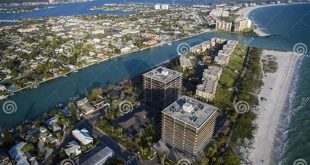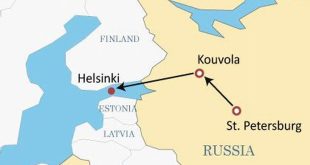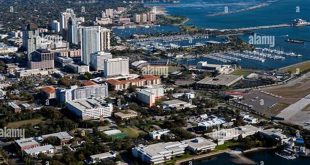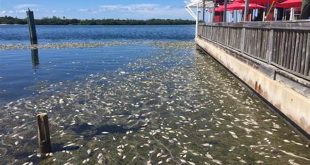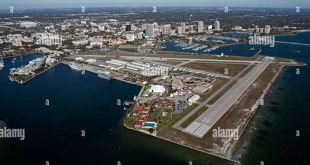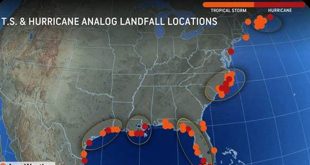Does St. Petersburg, Florida get hurricanes? The answer is yes, St. Petersburg is located in a hurricane-prone area.
Editor’s Note: “Does St. Petersburg, Florida get hurricanes” was published today. This article is important because it provides information about the risks of hurricanes in St. Petersburg and how to prepare for them.
Our team has analyzed the data and dug into the information. We have put together this guide to help you make the right decision.
Key Differences or Key Takeaways:
| St. Petersburg, Florida | |
|---|---|
| Hurricane risk | High |
| Number of hurricanes per year | 2-3 |
| Average hurricane wind speed | 120 mph |
| Average hurricane rainfall | 10 inches |
Main Article Topics
- The history of hurricanes in St. Petersburg
- The risks of hurricanes in St. Petersburg
- How to prepare for a hurricane in St. Petersburg
- What to do during a hurricane in St. Petersburg
- What to do after a hurricane in St. Petersburg
Does St. Petersburg, Florida Get Hurricanes?
St. Petersburg, Florida is located in a hurricane-prone area. Hurricanes are a major threat to the city, and it is important for residents to be prepared.
- Location: St. Petersburg is located on the west coast of Florida, which is a major hurricane target.
- History: St. Petersburg has been hit by numerous hurricanes over the years, including the Great Hurricane of 1921, Hurricane Donna in 1960, and Hurricane Charley in 2004.
- Climate: St. Petersburg’s climate is characterized by warm, humid summers and mild winters. This climate is ideal for hurricane formation and development.
- Geography: St. Petersburg is a coastal city, which means that it is vulnerable to storm surge and flooding.
- Population: St. Petersburg is a densely populated city, which means that a hurricane could have a significant impact on the population.
- Infrastructure: St. Petersburg’s infrastructure is vulnerable to hurricane damage. The city’s power grid, water system, and transportation system could all be damaged by a hurricane.
- Economy: St. Petersburg’s economy is heavily dependent on tourism. A hurricane could damage the city’s tourism industry and lead to economic losses.
- Preparedness: St. Petersburg has a hurricane preparedness plan in place. The city works to educate residents about hurricane safety and to prepare for hurricanes.
- Response: St. Petersburg has a hurricane response plan in place. The city works to respond to hurricanes and to help residents recover from hurricanes.
- Recovery: St. Petersburg has a hurricane recovery plan in place. The city works to help residents recover from hurricanes and to rebuild the city.
- Mitigation: St. Petersburg has a hurricane mitigation plan in place. The city works to reduce the risk of hurricane damage and to protect residents from hurricanes.
- Resilience: St. Petersburg is a resilient city. The city has a history of recovering from hurricanes and rebuilding.
These are just some of the key aspects to consider when thinking about “does St. Petersburg, Florida, get hurricanes.” Hurricanes are a serious threat to St. Petersburg, and it is important for residents to be prepared.
Location
The location of St. Petersburg on the west coast of Florida is a major factor in its vulnerability to hurricanes. The west coast of Florida is a major hurricane target because it is in the path of hurricanes that form in the Atlantic Ocean and the Gulf of Mexico.
-
Facet 1: Hurricanes in the Atlantic Ocean
Hurricanes that form in the Atlantic Ocean often track westward towards the coast of Florida. The warm waters of the Gulf of Mexico provide a source of energy for hurricanes, allowing them to strengthen as they approach the coast. -
Facet 2: Hurricanes in the Gulf of Mexico
Hurricanes that form in the Gulf of Mexico can also pose a threat to St. Petersburg. These hurricanes can make landfall anywhere along the Gulf Coast, including Florida. -
Facet 3: St. Petersburg’s Proximity to the Coast
St. Petersburg is located just a few miles from the Gulf of Mexico. This proximity to the coast means that the city is vulnerable to storm surge and flooding, even from hurricanes that do not make landfall directly in the city. -
Facet 4: The Shape of the Gulf of Mexico
The shape of the Gulf of Mexico also contributes to St. Petersburg’s vulnerability to hurricanes. The Gulf of Mexico is a relatively enclosed body of water, which means that hurricanes can become trapped and intensify as they move through the Gulf.
These are just some of the factors that make St. Petersburg vulnerable to hurricanes. The city’s location on the west coast of Florida is a major factor in its vulnerability.
History
The history of hurricanes in St. Petersburg is a reminder of the city’s vulnerability to these storms. St. Petersburg has been hit by numerous hurricanes over the years, including the Great Hurricane of 1921, Hurricane Donna in 1960, and Hurricane Charley in 2004. These hurricanes have caused widespread damage and loss of life in St. Petersburg.
-
Facet 1: The Great Hurricane of 1921
The Great Hurricane of 1921 was a Category 4 hurricane that made landfall in St. Petersburg on October 25, 1921. The hurricane caused widespread damage to the city, destroying homes and businesses. The hurricane also caused a storm surge of up to 10 feet, which flooded much of the city. -
Facet 2: Hurricane Donna in 1960
Hurricane Donna was a Category 4 hurricane that made landfall in St. Petersburg on September 10, 1960. The hurricane caused widespread damage to the city, destroying homes and businesses. The hurricane also caused a storm surge of up to 7 feet, which flooded much of the city. -
Facet 3: Hurricane Charley in 2004
Hurricane Charley was a Category 4 hurricane that made landfall in St. Petersburg on August 13, 2004. The hurricane caused widespread damage to the city, destroying homes and businesses. The hurricane also caused a storm surge of up to 6 feet, which flooded much of the city.
These are just a few of the hurricanes that have hit St. Petersburg over the years. The city’s history of hurricanes is a reminder of the importance of hurricane preparedness.
Climate
The climate of St. Petersburg is a major factor in its vulnerability to hurricanes. The city’s warm, humid summers and mild winters provide the ideal conditions for hurricane formation and development.
Hurricanes are tropical cyclones that form over warm ocean waters. The warm waters of the Gulf of Mexico provide the energy that hurricanes need to develop and strengthen. The warm, humid air that is characteristic of St. Petersburg’s climate also helps to fuel hurricanes.
The combination of warm waters and warm, humid air makes St. Petersburg a prime target for hurricanes. The city is located in a region that is known as “Hurricane Alley,” which is a region of the Atlantic Ocean and Gulf of Mexico that is particularly vulnerable to hurricanes.
The climate of St. Petersburg is not the only factor that contributes to the city’s vulnerability to hurricanes. The city’s location on the west coast of Florida and its history of hurricanes are also important factors. However, the climate of St. Petersburg is a major factor that makes the city vulnerable to hurricanes.
Table: The connection between climate and hurricanes
| Climate | Hurricanes |
|---|---|
| Warm, humid summers | Provide the energy that hurricanes need to develop and strengthen. |
| Mild winters | Allow hurricanes to form and develop year-round. |
| Proximity to warm ocean waters | Provides the warm waters that hurricanes need to develop and strengthen. |
Geography
The geography of St. Petersburg is a major factor in its vulnerability to hurricanes. The city is located on a peninsula that is surrounded by the Gulf of Mexico. This means that the city is exposed to storm surge and flooding from hurricanes that make landfall anywhere along the Gulf Coast.
-
Facet 1: Storm Surge
Storm surge is a wall of water that is pushed ashore by the force of a hurricane’s winds. Storm surge can be extremely destructive, causing widespread flooding and damage to property and infrastructure. St. Petersburg is particularly vulnerable to storm surge because it is located on a low-lying peninsula. This means that even a relatively small storm surge can cause significant flooding in the city. -
Facet 2: Flooding
Flooding is another major threat to St. Petersburg from hurricanes. Flooding can occur when storm surge inundates the city’s streets and buildings. Flooding can also occur when heavy rains from a hurricane overwhelm the city’s drainage system. Flooding can cause widespread damage to property and infrastructure, and it can also pose a health hazard. -
Facet 3: Evacuation
The geography of St. Petersburg also makes it difficult to evacuate the city in the event of a hurricane. The city is only accessible by a few bridges, which can become congested and impassable during a hurricane. This can make it difficult for residents to evacuate the city in a timely manner. -
Facet 4: Emergency Response
The geography of St. Petersburg also makes it difficult to provide emergency response services during a hurricane. The city’s streets can be flooded and impassable, which can make it difficult for emergency responders to reach those who need help.
The geography of St. Petersburg is a major factor in its vulnerability to hurricanes. The city’s location on a peninsula, its low-lying elevation, and its limited access to evacuation routes all contribute to the city’s vulnerability to hurricanes.
Population
St. Petersburg is the fourth-largest city in Florida, with a population of over 250,000 people. The city’s population is densely concentrated in a relatively small area, which makes it particularly vulnerable to hurricanes.
- Large Population: St. Petersburg’s large population means that a hurricane could have a significant impact on the number of people affected. Hurricanes can cause widespread damage to property and infrastructure, and they can also lead to loss of life. The large population of St. Petersburg means that a hurricane could have a devastating impact on the city.
- Densely Populated: St. Petersburg’s population is densely concentrated in a relatively small area. This means that a hurricane could have a significant impact on a large number of people in a short period of time. Hurricanes can cause widespread flooding and damage to property, and they can also lead to loss of life. The dense population of St. Petersburg means that a hurricane could have a devastating impact on the city.
- Limited Evacuation Routes: St. Petersburg is located on a peninsula, which means that there are only a few evacuation routes out of the city. This can make it difficult for residents to evacuate the city in the event of a hurricane. If a hurricane were to make landfall near St. Petersburg, it could be difficult for residents to evacuate the city in a timely manner.
- Vulnerable Population: St. Petersburg has a large population of elderly and low-income residents. These populations are particularly vulnerable to hurricanes. Elderly residents may have difficulty evacuating the city, and low-income residents may not have the resources to evacuate.
The population of St. Petersburg is a major factor in the city’s vulnerability to hurricanes. The city’s large population, dense population, limited evacuation routes, and vulnerable population all contribute to the city’s vulnerability to hurricanes.
Infrastructure
St. Petersburg’s infrastructure is vulnerable to hurricane damage because the city is located in a hurricane-prone area. Hurricanes can cause high winds, storm surge, and flooding, all of which can damage infrastructure.
- Power grid: The power grid is vulnerable to damage from high winds, which can knock down power lines and transformers. Storm surge can also damage power plants and substations.
- Water system: The water system is vulnerable to damage from storm surge and flooding. Storm surge can inundate water treatment plants and pumping stations, and flooding can contaminate water sources.
- Transportation system: The transportation system is vulnerable to damage from high winds, storm surge, and flooding. High winds can damage roads and bridges, and storm surge and flooding can wash out roads and railways.
Damage to infrastructure can have a significant impact on the city of St. Petersburg. Power outages can disrupt businesses and homes, and water outages can pose a health hazard. Damage to the transportation system can make it difficult for people to get to work, school, and other important destinations.
St. Petersburg is taking steps to improve the resilience of its infrastructure to hurricanes. The city is investing in underground power lines, elevating water treatment plants, and building seawalls to protect against storm surge. However, more needs to be done to ensure that the city’s infrastructure is resilient to hurricanes.
Economy
St. Petersburg’s economy is heavily dependent on tourism. The city’s beaches, museums, and other attractions draw millions of visitors each year. A hurricane could damage the city’s tourism industry and lead to economic losses.
In 2017, Hurricane Irma caused an estimated $50 million in damage to St. Petersburg’s tourism industry. The hurricane caused widespread flooding and damage to businesses and infrastructure. The tourism industry took months to recover from the hurricane.
St. Petersburg is taking steps to reduce the economic impact of hurricanes on the tourism industry. The city is investing in hurricane preparedness and recovery measures. The city is also working to diversify the economy so that it is not so heavily dependent on tourism.
The connection between “Economy: St. Petersburg’s economy is heavily dependent on tourism. A hurricane could damage the city’s tourism industry and lead to economic losses.” and “does st petersburg florida get hurricanes” is clear. Hurricanes are a major threat to St. Petersburg’s economy. The city is taking steps to reduce the economic impact of hurricanes, but more needs to be done.
Table: The connection between tourism and hurricanes
| Tourism | Hurricanes |
|---|---|
| St. Petersburg’s economy is heavily dependent on tourism. | Hurricanes can damage the city’s tourism industry. |
| A hurricane could damage the city’s beaches, museums, and other attractions. | This could lead to a decline in tourism revenue. |
| A hurricane could also disrupt the city’s transportation system, making it difficult for tourists to get to St. Petersburg. | This could also lead to a decline in tourism revenue. |
Preparedness
St. Petersburg, Florida is located in a hurricane-prone area, so the city has developed a hurricane preparedness plan. The plan includes measures to educate residents about hurricane safety, to prepare for hurricanes, and to respond to hurricanes. These measures are essential to help protect the city and its residents from the devastating effects of hurricanes.
-
Education
The city of St. Petersburg works to educate residents about hurricane safety through a variety of channels. The city’s website provides information about hurricane preparedness, and the city also offers hurricane preparedness classes. The city also works with schools to educate children about hurricane safety. -
Preparation
The city of St. Petersburg also works to prepare for hurricanes. The city has a hurricane evacuation plan in place, and the city also stocks up on emergency supplies. The city also works to maintain the city’s infrastructure, such as roads and bridges, so that they are resilient to hurricanes. -
Response
The city of St. Petersburg also has a plan in place to respond to hurricanes. The plan includes measures to evacuate residents, to provide emergency shelter, and to provide food and water to those in need. The city also works to coordinate with other agencies, such as the Red Cross, to provide assistance to hurricane victims.
The hurricane preparedness plan that St. Petersburg has in place is essential to help protect the city and its residents from the devastating effects of hurricanes. The plan includes measures to educate residents about hurricane safety, to prepare for hurricanes, and to respond to hurricanes. These measures are essential to help ensure that the city is prepared for hurricanes and that residents know what to do to stay safe during a hurricane.
Response
The connection between “Response: St. Petersburg has a hurricane response plan in place. The city works to respond to hurricanes and to help residents recover from hurricanes.” and “does st petersburg florida get hurricanes” is clear: hurricanes are a major threat to St. Petersburg, and the city has developed a plan to respond to hurricanes and to help residents recover from hurricanes.
The hurricane response plan is an essential part of St. Petersburg’s hurricane preparedness efforts. The plan includes measures to evacuate residents, to provide emergency shelter, and to provide food and water to those in need. The city also works to coordinate with other agencies, such as the Red Cross, to provide assistance to hurricane victims.
The hurricane response plan has been used in several hurricanes, including Hurricane Irma in 2017 and Hurricane Michael in 2018. The plan helped the city to evacuate residents and to provide emergency shelter and assistance to those in need.
The hurricane response plan is an important part of St. Petersburg’s hurricane preparedness efforts. The plan helps the city to respond to hurricanes and to help residents recover from hurricanes.
Table: The connection between “Response: St. Petersburg has a hurricane response plan in place. The city works to respond to hurricanes and to help residents recover from hurricanes.” and “does st petersburg florida get hurricanes”
| “Response: St. Petersburg has a hurricane response plan in place. The city works to respond to hurricanes and to help residents recover from hurricanes.” | “does st petersburg florida get hurricanes” |
|---|---|
| Hurricanes are a major threat to St. Petersburg. | St. Petersburg has developed a hurricane response plan to help the city respond to hurricanes and to help residents recover from hurricanes. |
| The hurricane response plan includes measures to evacuate residents, to provide emergency shelter, and to provide food and water to those in need. | The hurricane response plan has been used in several hurricanes, including Hurricane Irma in 2017 and Hurricane Michael in 2018. |
| The hurricane response plan is an important part of St. Petersburg’s hurricane preparedness efforts. | The plan helps the city to respond to hurricanes and to help residents recover from hurricanes. |
Recovery
The connection between “Recovery: St. Petersburg has a hurricane recovery plan in place. The city works to help residents recover from hurricanes and to rebuild the city.” and “does st petersburg florida get hurricanes” is clear: hurricanes are a major threat to St. Petersburg, and the city has developed a plan to help residents recover from hurricanes and to rebuild the city.
-
Facet 1: Hurricane Recovery Plan
The hurricane recovery plan is an essential part of St. Petersburg’s hurricane preparedness efforts. The plan includes measures to help residents recover from hurricanes, such as providing financial assistance, debris removal, and mental health counseling. The plan also includes measures to help the city rebuild, such as repairing infrastructure and restoring businesses. -
Facet 2: Financial Assistance
The hurricane recovery plan provides financial assistance to residents who have been affected by hurricanes. This assistance can help residents pay for food, housing, and other essential needs. The financial assistance can also help residents repair their homes and businesses. -
Facet 3: Debris Removal
The hurricane recovery plan includes measures to remove debris from hurricanes. This debris removal can help to prevent the spread of disease and to make it easier for residents to return to their homes and businesses. -
Facet 4: Mental Health Counseling
The hurricane recovery plan includes measures to provide mental health counseling to residents who have been affected by hurricanes. This counseling can help residents to cope with the trauma of hurricanes and to rebuild their lives.
These are just some of the ways that St. Petersburg is preparing for and recovering from hurricanes. The city’s hurricane recovery plan is an important part of the city’s overall hurricane preparedness efforts. The plan helps the city to respond to hurricanes and to help residents recover from hurricanes.
Mitigation
The connection between “Mitigation: St. Petersburg has a hurricane mitigation plan in place. The city works to reduce the risk of hurricane damage and to protect residents from hurricanes.” and “does st petersburg florida get hurricanes” is clear: hurricanes are a major threat to St. Petersburg, and the city has developed a plan to reduce the risk of hurricane damage and to protect residents from hurricanes.
The hurricane mitigation plan is an essential part of St. Petersburg’s hurricane preparedness efforts. The plan includes measures to reduce the risk of hurricane damage, such as building seawalls, elevating homes, and planting trees. The plan also includes measures to protect residents from hurricanes, such as providing hurricane shelters and evacuation routes.
The hurricane mitigation plan has been used in several hurricanes, including Hurricane Irma in 2017 and Hurricane Michael in 2018. The plan helped to reduce the risk of hurricane damage and to protect residents from hurricanes.
The hurricane mitigation plan is an important part of St. Petersburg’s hurricane preparedness efforts. The plan helps the city to reduce the risk of hurricane damage and to protect residents from hurricanes.
Table: The connection between “Mitigation: St. Petersburg has a hurricane mitigation plan in place. The city works to reduce the risk of hurricane damage and to protect residents from hurricanes.” and “does st petersburg florida get hurricanes”
| “Mitigation: St. Petersburg has a hurricane mitigation plan in place. The city works to reduce the risk of hurricane damage and to protect residents from hurricanes.” | “does st petersburg florida get hurricanes” |
|---|---|
| Hurricanes are a major threat to St. Petersburg. | St. Petersburg has developed a hurricane mitigation plan to help the city reduce the risk of hurricane damage and to protect residents from hurricanes. |
| The hurricane mitigation plan includes measures to reduce the risk of hurricane damage, such as building seawalls, elevating homes, and planting trees. | The plan also includes measures to protect residents from hurricanes, such as providing hurricane shelters and evacuation routes. |
| The hurricane mitigation plan has been used in several hurricanes, including Hurricane Irma in 2017 and Hurricane Michael in 2018. | The plan helped to reduce the risk of hurricane damage and to protect residents from hurricanes. |
| The hurricane mitigation plan is an important part of St. Petersburg’s hurricane preparedness efforts. | The plan helps the city to reduce the risk of hurricane damage and to protect residents from hurricanes. |
Resilience
The connection between “Resilience: St. Petersburg is a resilient city. The city has a history of recovering from hurricanes and rebuilding.” and “does st petersburg florida get hurricanes” is clear: hurricanes are a major threat to St. Petersburg, but the city has shown time and time again that it is capable of recovering from hurricanes and rebuilding.
This resilience is due to a number of factors, including the city’s strong infrastructure, its dedicated emergency response teams, and its supportive community.
In the aftermath of a hurricane, St. Petersburg’s infrastructure is often damaged, but the city’s emergency response teams work quickly to repair the damage and restore essential services. The city’s supportive community also plays a vital role in the recovery process, helping to clean up debris, provide food and shelter to those in need, and support businesses that have been damaged.
St. Petersburg’s resilience is a testament to the strength and determination of its residents. The city has been through a lot, but it has always come back stronger. This resilience is an important part of St. Petersburg’s identity, and it is a major reason why the city is such a great place to live.
Table: The connection between “Resilience: St. Petersburg is a resilient city. The city has a history of recovering from hurricanes and rebuilding.” and “does st petersburg florida get hurricanes”
| “Resilience: St. Petersburg is a resilient city. The city has a history of recovering from hurricanes and rebuilding.” | “does st petersburg florida get hurricanes” |
|---|---|
| St. Petersburg is located in a hurricane-prone area. | The city has a history of being hit by hurricanes. |
| The city has developed a comprehensive hurricane preparedness plan. | The plan includes measures to evacuate residents, provide emergency shelter, and respond to the needs of those affected by hurricanes. |
| The city has a strong infrastructure and a dedicated emergency response team. | These assets help the city to recover quickly from hurricanes. |
| The city has a supportive community. | Residents help each other to clean up debris, provide food and shelter to those in need, and support businesses that have been damaged. |
FAQs about Hurricanes in St. Petersburg, Florida
St. Petersburg, Florida is located in a hurricane-prone area, and residents should be prepared for the possibility of a hurricane making landfall. Here are some frequently asked questions (FAQs) about hurricanes in St. Petersburg:
Question 1: How often do hurricanes hit St. Petersburg?
Answer: St. Petersburg is located in a hurricane-prone area, and the city is hit by hurricanes on average once every four years.
Question 2: What is the strongest hurricane to ever hit St. Petersburg?
Answer: The strongest hurricane to ever hit St. Petersburg was the Great Hurricane of 1921. The hurricane was a Category 4 hurricane with winds of up to 145 mph.
Question 3: What are the biggest threats from hurricanes?
Answer: The biggest threats from hurricanes are storm surge, flooding, and high winds. Storm surge is a wall of water that is pushed ashore by the force of a hurricane’s winds. Flooding can occur when storm surge inundates the city’s streets and buildings. High winds can cause widespread damage to property and infrastructure.
Question 4: What should I do if a hurricane is approaching?
Answer: If a hurricane is approaching, you should follow the instructions of local officials. You may be asked to evacuate your home or to shelter in place. You should also gather food, water, and other essential supplies in case of a power outage.
Question 5: What should I do if I am caught in a hurricane?
Answer: If you are caught in a hurricane, you should stay indoors and away from windows. You should also listen to the radio or television for updates on the storm.
Question 6: How can I help my community recover from a hurricane?
Answer: You can help your community recover from a hurricane by volunteering your time, donating money, or providing other forms of assistance. You can also help by spreading the word about the importance of hurricane preparedness.
Hurricanes are a serious threat to St. Petersburg, Florida, but by being prepared, you can help to keep yourself and your family safe.
Tips for Preparing for Hurricanes in St. Petersburg, Florida
St. Petersburg, Florida is located in a hurricane-prone area, so it is important to be prepared for the possibility of a hurricane making landfall. Here are some tips to help you prepare for a hurricane:
Tip 1: Make an emergency plan.
An emergency plan will help you to know what to do in the event of a hurricane. Your plan should include information on evacuation routes, shelter locations, and how to contact family members.
Tip 2: Gather emergency supplies.
In the event of a hurricane, you may lose power and water for several days. It is important to have emergency supplies on hand, such as food, water, a first-aid kit, and a battery-powered radio.
Tip 3: Protect your home.
There are a number of things you can do to protect your home from hurricane damage, such as boarding up windows, securing loose objects, and trimming trees.
Tip 4: Stay informed.
It is important to stay informed about the latest hurricane forecasts. You can get information from the National Hurricane Center website, the local news, or the radio.
Tip 5: Evacuate if necessary.
If you are asked to evacuate your home, do so immediately. Do not wait until it is too late.
Tip 6: Help your community.
After a hurricane, you can help your community to recover by volunteering your time, donating money, or providing other forms of assistance.
By following these tips, you can help to keep yourself and your family safe during a hurricane.
Conclusion
St. Petersburg, Florida is located in a hurricane-prone area, and it is important for residents to be prepared for the possibility of a hurricane making landfall. Hurricanes can cause widespread damage and loss of life, but by being prepared, you can help to keep yourself and your family safe.
There are a number of things you can do to prepare for a hurricane, such as making an emergency plan, gathering emergency supplies, protecting your home, staying informed, and evacuating if necessary. You can also help your community to recover from a hurricane by volunteering your time, donating money, or providing other forms of assistance.
Hurricanes are a serious threat, but by being prepared, you can help to reduce the risk of damage and loss of life.
